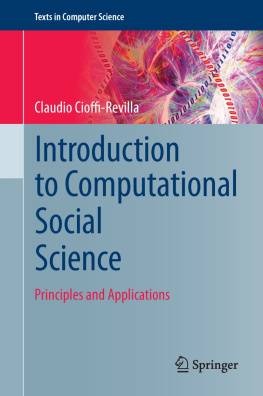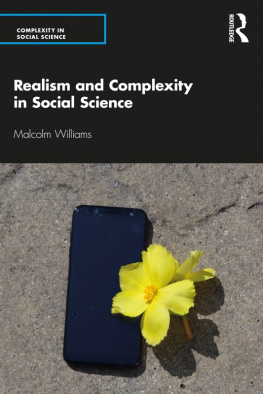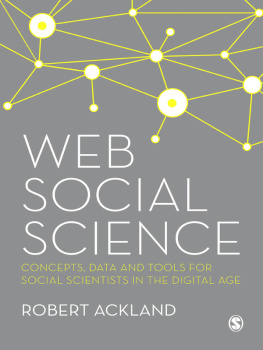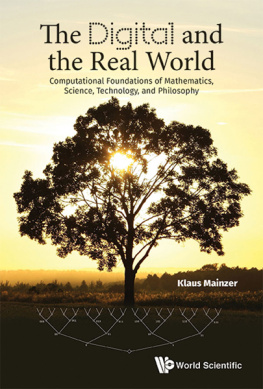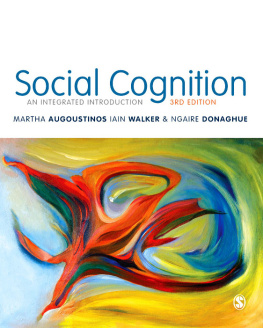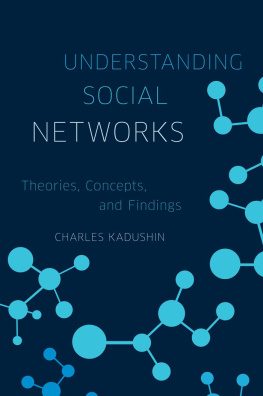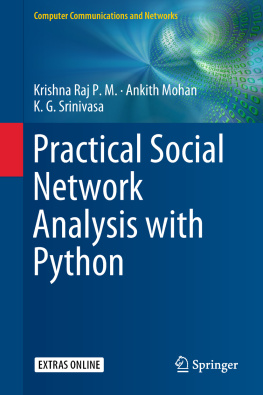1. Introduction
Abstract
What is Computational Social Science (CSS)? What are the main areas of this new, emerging field? What are the main assumptions and potential contributions of CSS? How does CSS differ from traditional social science disciplines? How does it differ from computer science? This chapter introduces the reader to the field of CSS, defined as the interdisciplinary conduct of social science research through an information-processing and complex adaptive systems paradigm, using computation as the key enabling scientific methodology. After exploring the definition of CSS and the computational paradigm of society, the chapter provides examples of CSS investigations in basic and applied domains across the social sciences and areas of policy analysis. The concept of a complex adaptive system is introduced in the context of Herbert A. Simon's fundamental theory of artifacts, especially in terms of explaining the origin and development of social complexity and civilizationboth ancient and contemporary. An overview of the main areas of CSS is provided, including computational content analysis, social networks, social complexity, and social simulation models. Each area of CSS is detailed in subsequent chapters. The chapter concludes with a historical overview of CSS to explain the scientific roots and main trends of the field.
The goal of this chapter is to present foundational concepts and some operational definitions in the field of Computational Social Science (CSS for short) by introducing the main assumptions, features, and research areas. A key feature of CSS is its interdisciplinary nature. Computational modeling enables researchers to leverage and integrate knowledge from many different disciplines, not just the social sciences. This chapter also provides an overview of the whole textbook by providing a peek into each chapter. The purpose is not to enter into many details at this stage, but to provide a preview of some of the main ideas examined in subsequent chapters.
One of the key challenges in the field of Computational Social Science is that several relatively subtle or complicated ideas need to be introduced simultaneously. Social complexity, complex adaptive systems, computational models, and similar terms are introduced in this chapter, and later elaborated upon in greater depth. What we need for now are some initial concepts so that we may get started in establishing foundations. There is no attempt in this chapter to provide an exhaustive treatment of each and every term that is introduced.
1.1 What Is Computational Social Science?
The origin of social sciencein the pre -computational agecan be traced back to Greek scholars, such as Aristotle, who conducted the first systematic investigations into the nature of social systems, governance, and the similarities and differences among monarchies, democracies, and aristocracies. In fact, Aristotle is often considered the first social science practitioner of comparative social research. Modern social science, however, is usually dated to the 17th century, when prominent French social scientists such as Auguste Comte first envisioned a natural science of social systems, complete with statistical and mathematical foundations and methods to enhance traditional historical and earlier philosophical approaches. Since then, the social sciences have developed a vast body of knowledge for understanding human and social behavior in its many forms (Bernard )were born four centuries ago.
The new field of Computational Social Science can be defined as the interdisciplinary investigation of the social universe on many scales, ranging from individual actors to the largest groupings, through the medium of computation. This working definition is somewhat long and will be refined later as we examine many topics involved in the practice of CSS and the variety of computational approaches that are necessary for understanding social complexity. For example, the many scales of social groupings involve a great variety of organizational, temporal, and spatial dimensions, sometimes simultaneously. In addition, computation or computational approaches refer to numerous computer-based instruments, as well as substantive concepts and theories, ranging from information extraction algorithms to computer simulation models. Many more will be invented, given the expansive character of computational tools. In short, CSS involves a vast field of exciting scientific research at the intersection of all social science disciplines, applied computer science, and related disciplines. Later in this chapter we will examine some analogues in other fields of knowledge.
Another useful clarification to keep in mind is that CSS is not limited to Big Data, or to social network analysis, or to social simulation models. That would be a misconception. Nor is CSS defined as any one of these relatively narrower areas. It comprises all of these, as well as other areas of scientific inquiry, as we will preview later in this chapter.
1.2 A Computational Paradigm of Society
Paradigms are significant in science because they define a perspective by orienting inquiry. A paradigm is not really meant to be a theory, at least not in the strict sense of the term. What a paradigm does is provide a particularly useful perspective, a comprehensive worldview ( Weltanschauung ). Computational social science is based on an information-processing paradigm of society. This means, most obviously, that information plays a vital role in understanding how social systems and processes operate. In particular, information-processing plays a fundamental role in explaining and understanding social complexity, which is a subtle and deep concept to grasp in CSS as well as in more traditional social science.
The information-processing paradigm of CSS has dual aspects: substantive and methodological. From the substantive point of view, this means that CSS uses information-processing as a key ingredient for explaining and understanding how society and human beings within it operate to produce emergent complex systems. As a consequence, this also means that social complexity cannot be understood without highlighting human and social processing of information as a fundamental phenomenon. From a methodological point of view, the information-processing paradigm points toward computing as a fundamental instrumental approach for modeling and understanding social complexity. This does not mean that other approaches, such as historical, statistical, or mathematical, become irrelevant. On the contrary, computational methods necessarily rely on these earlier approachesand other methodologies, such as field methods, remote sensing, or visualization analyticsin order to add value in terms of improving our explanations and understanding of social complexity. In subsequent chapters we shall examine many examples pertaining to these ideas. For now, the best way to understand the information-processing paradigm of CSS is simply to view it as a powerful scientific perspective that enables new and deep insights into the nature of the social universe.
1.3 CSS as an Instrument-Enabled Science
CSS is by no means alone in being an instrument-enabled scientific discipline . Consider astronomy , a science that was largely speculative and slow in developing before the invention of the optical telescope in the early 1600s. What Galileo Galilei and his contemporaries discovered through the use of telescopes enabled astronomy to become a real science in the modern sense. In particular, the optical telescope enabled astronomers to see and seek to explain and understand vast areas of the universe that had been previously unknown: remote moons, planetary rings, sun spots, among the most spectacular discoveries. Centuries later, the radio telescope and infrared sensors each enabled subsequent revolutions in astronomy.

